Breaking the silence
Senior Hidaya Hussen joins the number of men and women who have spoken out on their own sexual abuse as part of the #MeToo movement
Editors Note: Generally, it is The A-Blast’s policy not to print the name of minors involved in sexual assault. However, the victim and her mother, in a bid to encourage other survivors to come forward, chose to go public.
She was eight years old when she was first raped by her father.
Since then, she has lived two lives. By day, she was a normal teenager committed to her studies and friends. She earned a 4.1 GPA, and was involved in theater where she played the fairy godmother in Cinderella. By night, she was fighting for her sanity against the wicked that is her father.
Her father had a calm, charismatic persona in public. But only she knew the fear he reigned in their home, first by physically abusing her mother, then by sexually assaulting her.
She battled with rage and shame as he molested and harassed her continuously until she was 16. She immersed herself in school in order to feel a semblance of hope. It was not enough to shield her from the living hell she experienced. She began to have flashing fits of anger which escalated to severe panic attacks.
Senior Hidaya Hussen could not take it any longer.
She finally told her mother the summer before her junior year. Her father is now convicted and his sentencing is approaching. Before then, it had been a secret for almost nine years.
Online, however, it took only two words to open the floodgates: “Me too.” When actress Alyssa Milano asked those who have been sexually harassed or assaulted to use the phrase “me too” on social media, millions of women and men used social media to disclose harassment and abuse they have faced in their own lives.
It began when a New York Times exposé revealed detailed sexual allegations against prominent Hollywood producer, Harvey Weinstein.
Weinstein, co-chairman of The Weinstein Company and co-founder of Miramax created a mini-empire as one of the most well-known figures in Hollywood.
It all came crashing down with a series of damning stories by dozens of women that revealed sexual abuse and violence — from screaming and berating to character assassination and rape. His behavior was both an open secret in Hollywood.
Weinstein is only one of dozens of men who have been implicated for sexual assault and harassment.
Actor Anthony Rapp accused Kevin Spacey, who stars in Netflix hit television show House of Cards, of making sexual advances on him when Rapp was 14. In the wake of Rapp’s accusation, numerous other men alleged that Spacey had sexually harassed or assaulted them. As a result, Netflix indefinitely suspended production of House of Cards.
The issue is not just isolated in Hollywood.
Nine women have now come forward with accusations against the attorney of Roy Moore, former Alabama Chief Justice and U.S. Senate candidate. Three of the women accusing him are underage; one claims she was as young as 14 when Moore first approached her when he was 32.
These controversies have sparked the biggest national conversation on sexual harassment since the Anita Hill-Clarence Thomas controversy in the ‘90s when Hill accused her boss and then Supreme-Court nominee, Thomas, of sexual harassment.
They have also revealed that the United States does not just have a rape problem — it has a rape epidemic. One woman in this country is raped every two minutes, and 42 percent of victims are raped before they are 18 years old.
Prominent actors and actresses have come forward with stories, putting their fellow Hollywood A-listers sharply in the spotlight.
Major public figures like Olympic gold-medalist gymnast Aly Raisman, who came forth with allegations against the Team USA doctor Larry Nassar, have come forward with their own stories. Men have made allegations as well.
Actor Terry Crews publicly named Adam Venit, the head of the motion picture department of agency William Moris Endeavor (WME), as the man who groped him at an industry party under the hashtag #MeToo.
Ordinary people, like Hussen, felt empowered to speak out as well. However, Hussen says she was not always this outspoken.
“I always come close to telling people, especially entering high school. Whenever the subject came up, I’d come very close but would refrain. I️t was an hourly struggle,” Hussen said.
Every survivor responds to traumatic events in their own way. The effects of the trauma can be short-term or last long after the sexual assault or rape.
“When students are abused, they can often feel ashamed or be hesitant to speak up,” school psychologist Dr. Anne Brosnan said. “That can lead them into not being able to concentrate as well, sleep problems, not interacting with friends as much.”
Hussen threw herself into her studies, which acted as an escape.
“There weren’t many effects until after the summer I told my mom. Before [the abuse] was engraved in my mind as my role. Just another thing I had to go through growing up. School was my biggest distraction and time investment,” Hussen said.
However, when her panic attacks became too overwhelming she decided to tell someone.
“After one of my episodes, I was close to suicide. Something stopped me,” Hussen said. “The next morning, I told my entire story to my best friend.”
This also later prompted her to tell her mother as well who was, at that time, bringing charges against her father in family court for domestic abuse.
Soon, things escalated as Hussen and her mother told the police without telling her father who was not staying at the home at that time.
She struggled as the police questioned her as they asked her questions that sought to quash her credibility: Are you only now coming forward with this to help your mother’s divorce? Why did you wait so long to say anything?
After being bought in for questioning, her father admitted his crime.
He was and still is placed in the adult detention center until sentencing, which is approaching in December.
As her father’s case was developing in her junior year, Hussen’s grades deteriorated and school was no longer her refuge. It began to serve as a reminder of all that she kept within her. She could not face it. She began missing school, staying in, sleeping in, struggling to hold onto what she valued.
“My grades have deteriorated, I’ve questioned my being beyond words can describe. For a good seven months, I walked a ball of emotion as well as a figure of nothing. I was no one, my dreams were gone,” Hussen said. “I had to discover whether or not my past passions were me or him, whether my friend and life choices were of my own or influenced by him. I didn’t want him in my life at all.”
Brosnan said that this was not something unusual for students who are victims of violence of this nature.
“If they are thinking about something a lot, it can be more difficult for them to concentrate and focus even when they are in school or at their after school activities or their sports,” Brosnan said.
Although she is glad she finally able to lift a weight off her shoulders as the panic attacks decreased, the release was offset by an increased feeling of anger that produced itself in violent fits of yelling and screaming. After therapy, which she regularly attends, she discovered that the root of the anger was Post Traumatic Stress Disorder (PTSD).
Hussen is glad that she told her someone. Although it comes with a lot of guilt. She knows she did the right thing and it able to at least have a semblance of a life outside of her home.
“If you are uncomfortable or if another person is making you uncomfortable, speak up. Tell your friend, but also come and tell an adult.” Brosnan said. “We also hope that everyone has an adult that they can trust that can be a teacher, administrator or another person in the building.”
Hussen has now committed herself into her passions. Last year, as everything as unfolding, she says that music and theater helped her discover herself.
“I loved singing. Music provided a way for my heart to speak. It was my faith. No matter what went wrong, music was always there,” Hussen said. “I discovered acting which was exactly what a crazy, vibrant, emotional human like me needs.”
She knows that she will continue to struggle internally and that the abuse will never leave her.
“I am still not okay, I’m better. I probably will never be okay, but I will always be getting better. Because here I am, speaking out about something I swore I’d never tell, rest with in the grave. Successful in ways I never knew I could be, and stronger than anyone I know,” Hussen said.
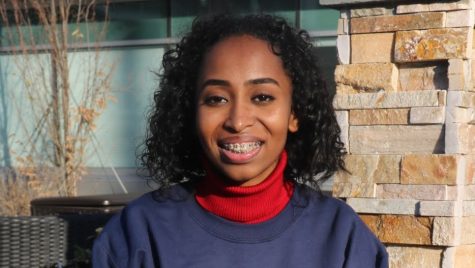
Senior Aseal Saed is currently the Co-Editor in Chief of The A-Blast. This is her fourth year on staff. Her previous positions were as In-Depth Editor...



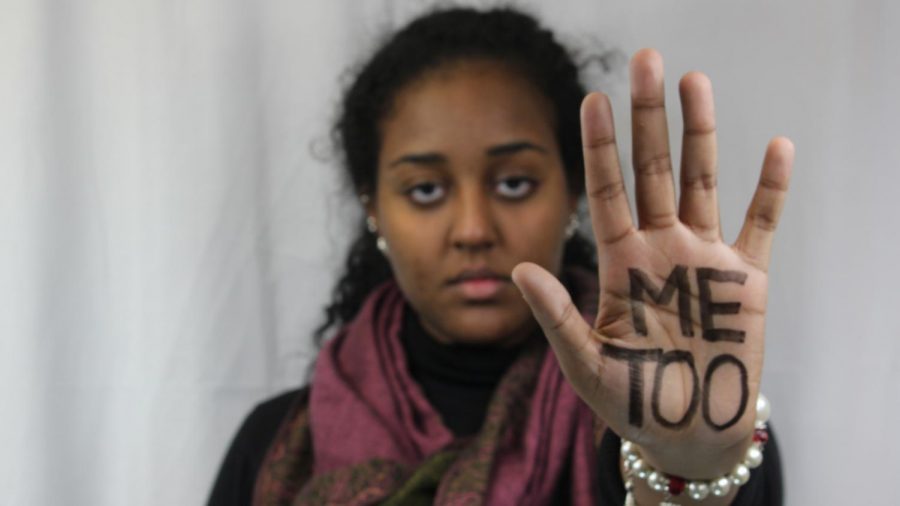




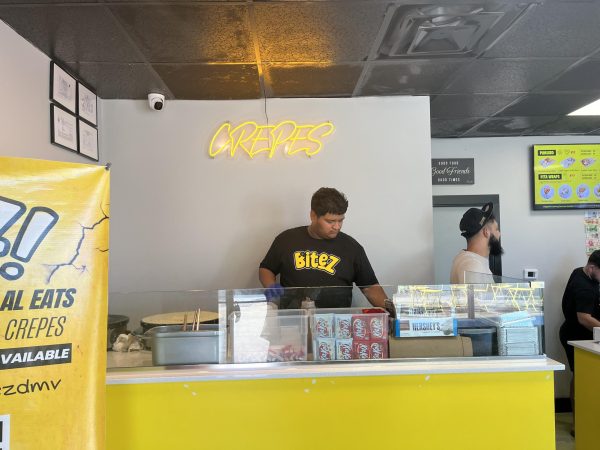
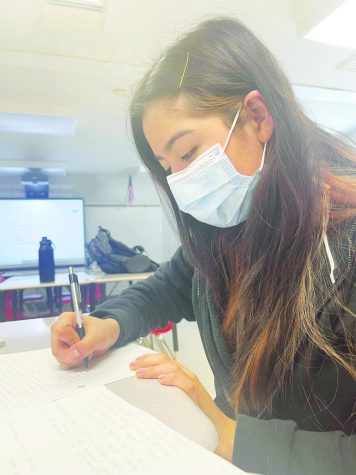

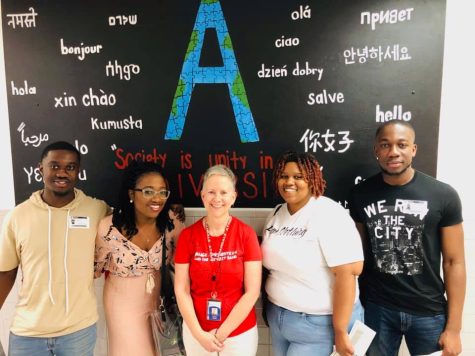
Keyanna Celina • Nov 27, 2017 at 2:16 pm
It did not start w/ Alyssa Milano, it started with a Black woman named Tarana Burke.